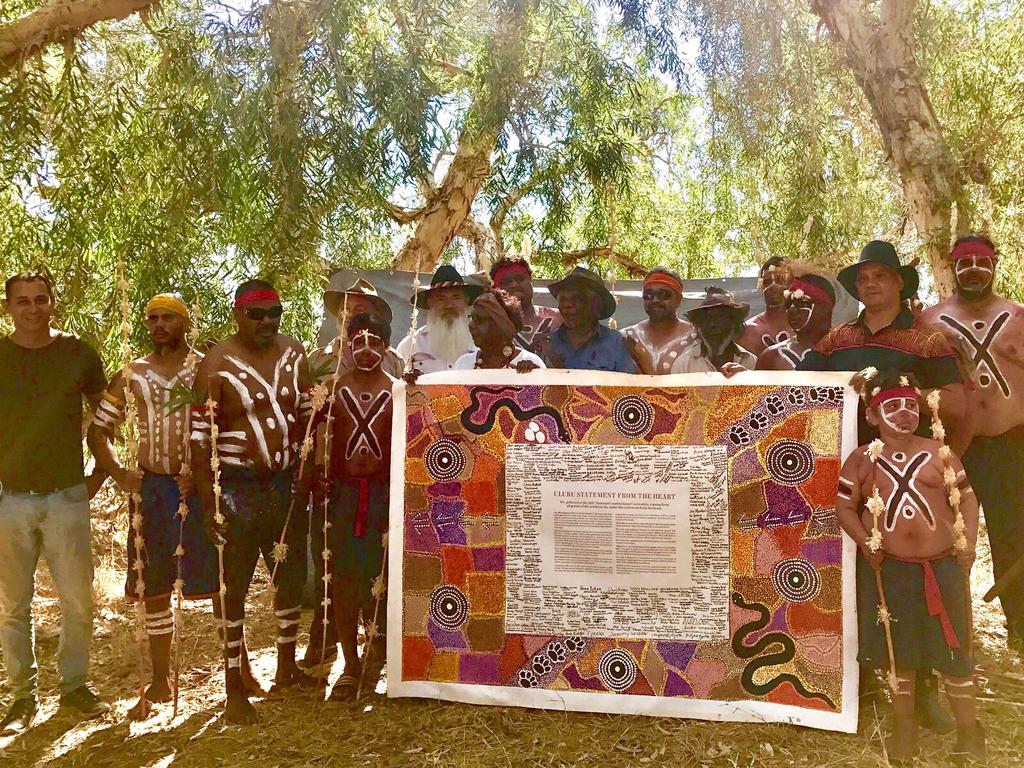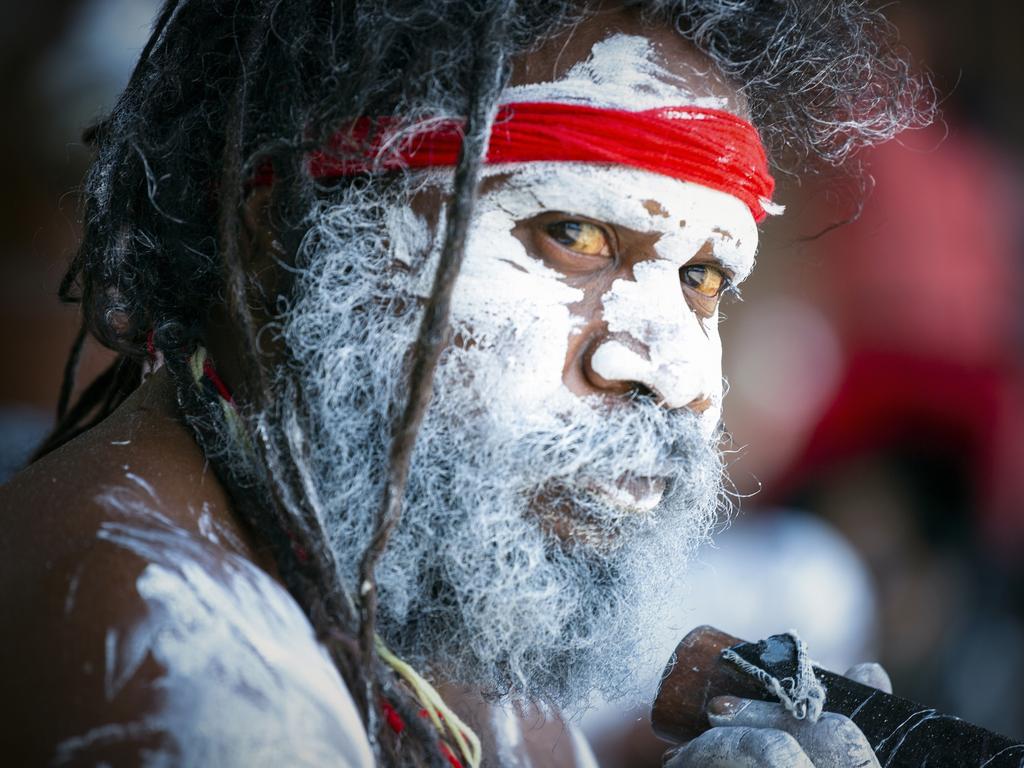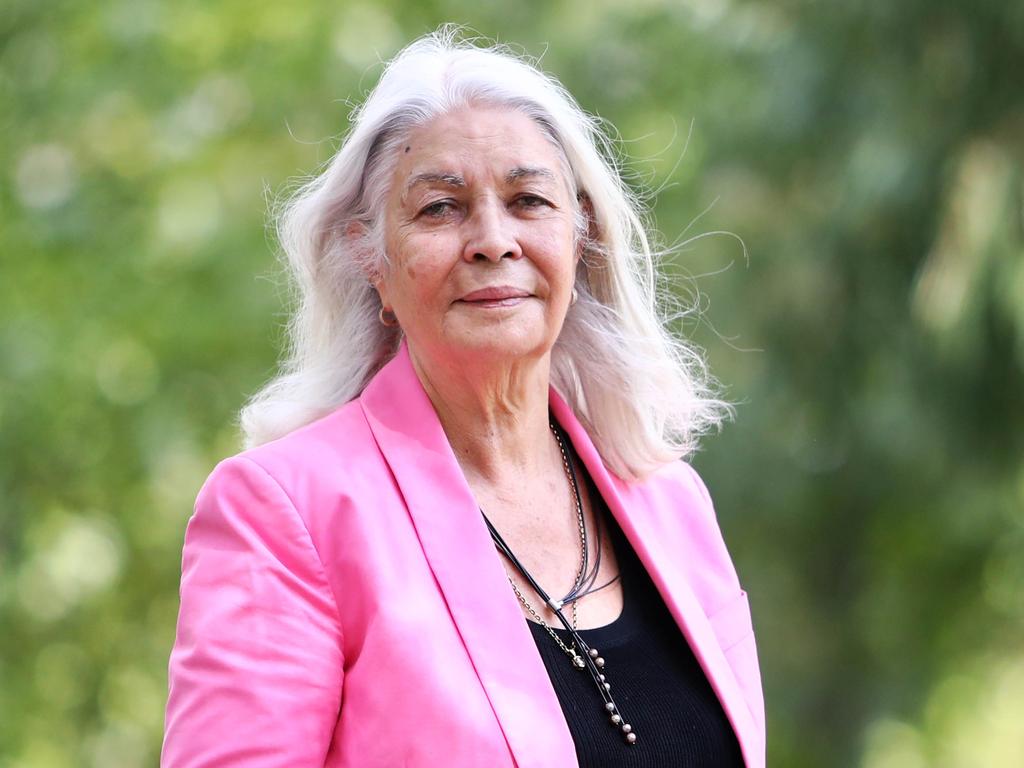It’s time: growing support for Indigenous voice
The support for changing the Constitution to include an Indigenous voice to parliament has climbed from 44 to 56 per cent in three years.

The first analysis of how Australians feel about changing the Constitution to include an Indigenous voice to parliament finds support has climbed from 44 to 56 per cent in three years.
Support for a constitutionally enshrined Indigenous voice is as high as 77 per cent in surveys that do not offer an “undecided” option, according to the Australian National University’s examination of 12 polls since June 2017.
But the ANU’s Centre for Aboriginal Economic Policy Research paper also finds that support among Coalition voters for a constitutionally enshrined voice began to fall in the second half of 2017 as prime minister Malcolm Turnbull made public statements against it, including that it would fail at a referendum.
Report authors Francis Markham and Will Sanders write that the trends in voice polls show there has been a “follow the leader” effect among committed voters on both sides of politics.
While Dr Markham and Dr Sanders found little data on attitudes to a constitutionally enshrined voice in less populated states including Tasmania, Western Australia and Queensland, they conclude Mr Turnbull essentially had it wrong when he said there was no realistic prospect of it succeeding at a referendum. They argue this is Scott Morrison’s 1967 moment — an opportunity to lead Coalition voters towards a change as powerful as the referendum 53 years ago that allowed the federal government to make laws for Aboriginal and Torres Strait Islander people and include them in the census.
It was the biggest “Yes” vote in Australian history.
“(A) Coalition leadership which returns to the idea of a constitutionally enshrined First Nations Voice with a more positive frame than in 2017 is likely to sway a considerable bloc of voters towards supporting a Voice,” the report states. “In doing so, it would make the success of a referendum all but assured.
“With clear conservative leadership, the results of a referendum on a constitutionally enshrined First Nations Voice could look more like those of 1967 than 1999 (when the referendum on a republic failed). The first and crucial step is for the Coalition leadership to decide that this is the way forward, as Holt did after succeeding Menzies back in 1966.”
In August 2017 — three months after the Uluru Statement from the Heart called for an Indigenous voice in the Constitution — a survey of 1526 adults by Omnipoll found 61 per cent were in favour of it, including 55 per cent of participants who identified as Coalition voters.
By December that year, however, a Now Poll of 1417 people found support among Coalition voters had fallen to 41 per cent. That was two months after Mr Turnbull said in a joint statement with then Indigenous affairs minister Nigel Scullion and then attorney-general George Brandis that the proposal “would inevitably become seen as a third chamber of parliament”.
Cabinet had rejected it.
The report’s analysis of polls between June 2017 and June this year indicates that support for a constitutionally enshrined voice is on an upward trajectory overall. However, it had a downward trajectory among Coalition voters in the lead-up to the last election.
In April last year, an ABC Vote Compass survey of visitors to the broadcaster’s website found 38 per cent of Coalition voters agreed the Constitution should be changed to include an Indigenous body such as the one described in the Uluru statement.
That is the most recent known survey on the subject that records the sentiment of Coalition voters. The same survey recorded a further 19 per cent of Coalition voters as neutral.
Both the Coalition and Labor are committed to a voice but the difference between one that is in the Constitution and one “merely legislated” is crucial for key supporters of the Uluru statement, partly because a future government can alter or wipe legislation.
The ANU research is published on Saturday as federal cabinet prepares to consider a proposed model for the voice from Indigenous leaders Marcia Langton and Tom Calma.
They worked with 52 Indigenous and non-Indigenous people in three groups for a year to co-design a blueprint that will soon be subject to public consultations.
Dr Markham and Dr Sanders write that, despite idiosyncrasies in the polling they examined, and variations in the questions asked and responses allowed, a clear story emerges from the public opinion research.
“The public are open to a Voice across the major party divide,” the report states.
It adds: “Most polls indicate that 70–75 per cent of voters with a committed position on the matter support a First Nations Voice to parliament.”








To join the conversation, please log in. Don't have an account? Register
Join the conversation, you are commenting as Logout